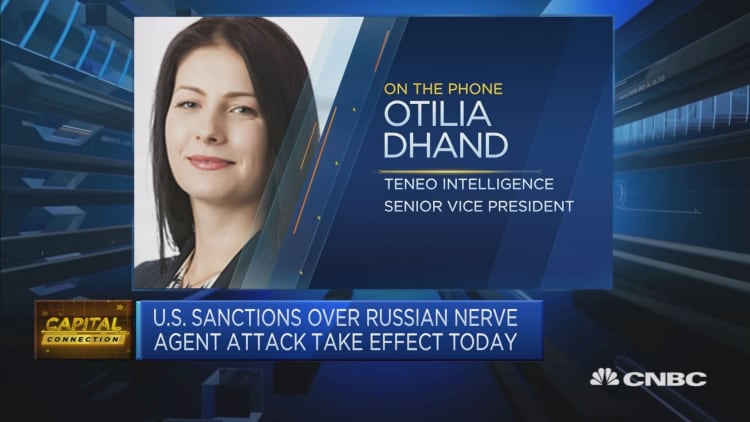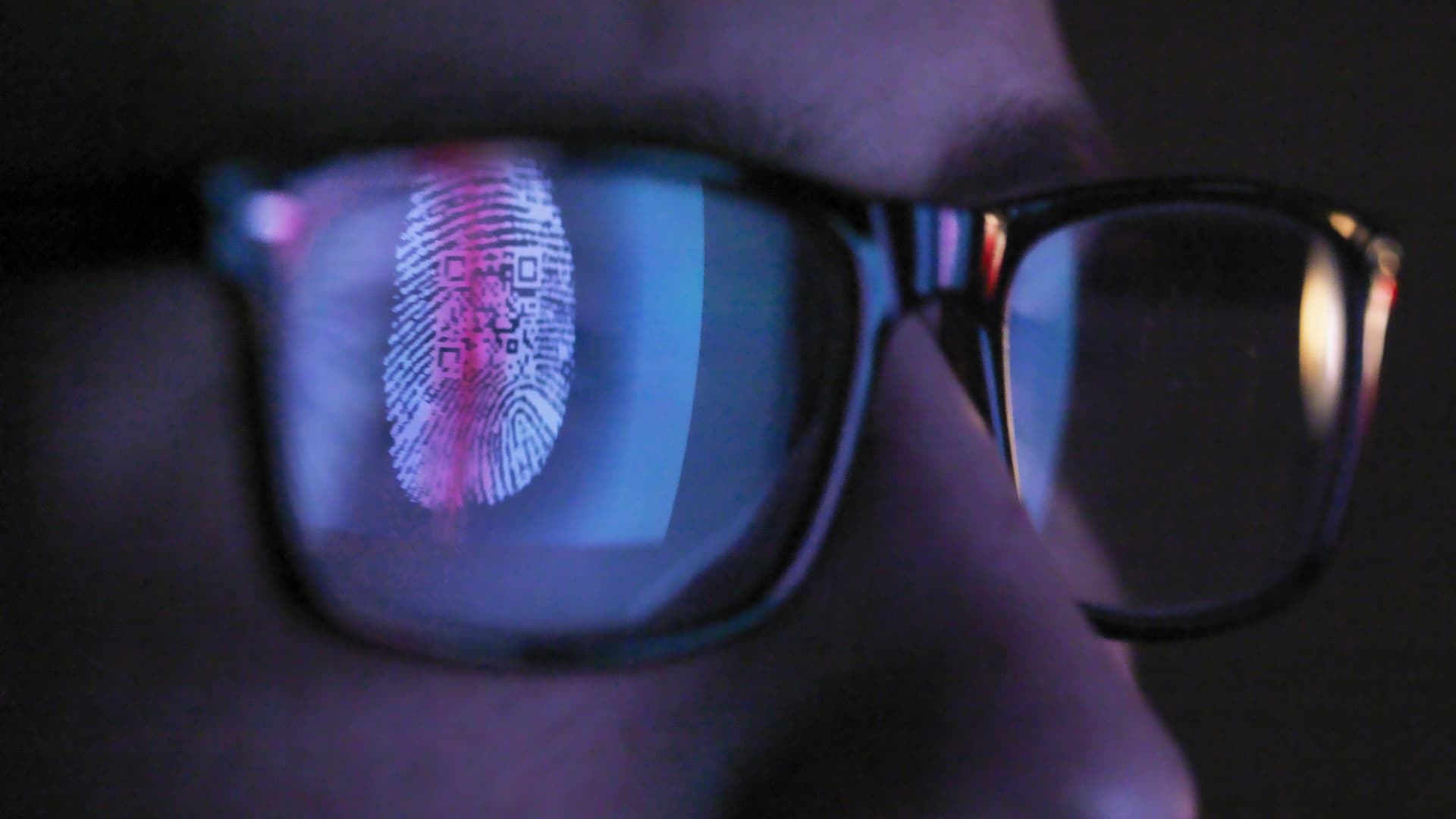Disinformation is predicted to be a few of the supremacy cyber dangers for elections in 2024.
Andrew Brookes | Symbol Supply | Getty Photographs
Britain is predicted to stand a barrage of state-backed cyber assaults and disinformation campaigns because it heads to the polls in 2024 â and synthetic logic is a key chance, consistent with cyber mavens who stated to CNBC.Â
Brits will vote on Would possibly 2 in native elections, and a basic election is predicted in the second one part of this hour, even if British High Minister Rishi Sunak has now not but dedicated to a life.
The votes come as the rustic faces a space of issues together with a cost-of-living extremity and stark categories over immigration and asylum.
“With most U.K. citizens voting at polling stations on the day of the election, I expect the majority of cybersecurity risks to emerge in the months leading up to the day itself,” Todd McKinnon, CEO of id safety company Okta, instructed CNBC by way of e-mail.Â
It wouldn’t be the primary age.
In 2016, the U.S. presidential election and U.K. Brexit vote had been each discovered to had been disrupted through disinformation shared on social media platforms, allegedly through Russian state-affiliated teams, even if Moscow denies those claims.
Surrounding actors have since made routine attacks in various countries to control the end result of elections, consistent with cyber mavens.Â
In the meantime, endmost life, the U.Okay. alleged that Chinese state-affiliated hacking group APT 31 attempted to access U.K. lawmakers’ email accounts, however stated such makes an attempt had been unsuccessful. London imposed sanctions on Chinese language folks and a era company in Wuhan believed to be a entrance for APT 31.
The U.S., Australia, and Unused Zealand adopted with their very own sanctions. China denied allegations of state-sponsored hacking, calling them “groundless.”
Cybercriminals using AIÂ
Cybersecurity mavens be expecting evil actors to intervene within the then elections in different techniques â now not least thru disinformation, which is predicted to be even worse this hour because of the customery virtue of man-made logic.Â
Artificial pictures, movies and audio generated the use of pc graphics, simulation forms and AI â regularly known as “deep fakes” â will probably be a usual incidence because it turns into more straightforward for folk to assemble them, say mavens. Â
“Nation-state actors and cybercriminals are likely to utilize AI-powered identity-based attacks like phishing, social engineering, ransomware, and supply chain compromises to target politicians, campaign staff, and election-related institutions,” Okta’s McKinnon added. Â
“We’re also sure to see an influx of AI and bot-driven content generated by threat actors to push out misinformation at an even greater scale than we’ve seen in previous election cycles.”
The cybersecurity population has referred to as for heightened consciousness of this sort of AI-generated incorrect information, in addition to global cooperation to mitigate the chance of such evil process.Â
Manage election chance
Adam Meyers, head of counter adversary operations for cybersecurity company CrowdStrike, stated AI-powered disinformation is a supremacy chance for elections in 2024.Â
“Right now, generative AI can be used for harm or for good and so we see both applications every day increasingly adopted,” Meyers instructed CNBC.Â
China, Russia and Iran are extremely prone to behavior incorrect information and disinformation operations towards numerous world elections with the aid of equipment like generative AI, consistent with Crowdstrike’s fresh annual ultimatum record.â¯Â
“This democratic process is extremely fragile,” Meyers instructed CNBC. “When you start looking at how hostile nation states like Russia or China or Iran can leverage generative AI and some of the newer technology to craft messages and to use deep fakes to create a story or a narrative that is compelling for people to accept, especially when people already have this kind of confirmation bias, it’s extremely dangerous.”
A key infection is that AI is lowering the barrier to access for criminals having a look to milk folk on-line. This has already took place within the mode of scam emails that have been crafted using easily accessible AI tools like ChatGPT.Â
Hackers also are creating extra complex â and private â assaults through coaching AI fashions on our personal information to be had on social media, consistent with Dan Holmes, a fraud prevention specialist at regulatory era company Feedzai.
“You can train those voice AI models very easily … through exposure to social [media],” Holmes instructed CNBC in an interview. “It’s [about] getting that emotional level of engagement and really coming up with something creative.”
Within the context of elections, a pretend AI-generated audio clip of Keir Starmer, chief of the opposition Labour Celebration, abusing celebration staffers was once posted to the social media platform X in October 2023. The publish racked up as many as 1.5 million perspectives, consistent with truth correction fund Complete Reality.
It’s only one instance of many deepfakes that experience cybersecurity mavens fearful about what’s to come back because the U.Okay. approaches elections upcoming this hour.
Elections a check for tech giants

Deep pretend era is changing into a quantity extra complex, alternatively. And for plenty of tech corporations, the race to overcome them is now about preventing hearth with hearth.Â
“Deepfakes went from being a theoretical thing to being very much live in production today,” Mike Tuchen, CEO of Onfido, instructed CNBC in an interview endmost hour.Â
“There’s a cat and mouse game now where it’s ‘AI vs. AI’ â using AI to detect deepfakes and mitigating the impact for our customers is the big battle right now.”Â
Cyber mavens say it’s changing into tougher to inform what’s actual â however there will also be some indicators that content material is digitally manipulated.Â
AI makes use of activates to generate textual content, pictures and video, however it doesn’t all the time get it proper. So as an example, should you’re looking at an AI-generated video of a dinner, and the spoon abruptly disappears, that’s an instance of an AI flaw.Â
“We’ll certainly see more deepfakes throughout the election process but an easy step we can all take is verifying the authenticity of something before we share it,” Okta’s McKinnon added.




